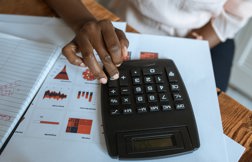For VAT purposes, the place of supply of a service is the place where that service is treated as being supplied. This is the place where it is liable to VAT (if any).
If it’s in the UK it is subject to UK VAT. If the supply is in an EU member state or another country, it is said to be ‘outside the scope’ of UK VAT.
If your business belongs in the UK and the place of supply of your service is in the UK you must charge UK VAT regardless of where your customer belongs. If the place of supply of your services is outside the UK, you or your customer may be liable for any VAT or equivalent tax due to the taxation authorities of that country.
It is important to establish the exact nature of the service being supplied and to whom. In some circumstances HMRC’s rules in this area will depend upon whether the service is business to business or business to consumer. Again, this is quite a complex area so please seek advice if you are uncertain whether your supply of services to overseas customers is liable to UK VAT.










